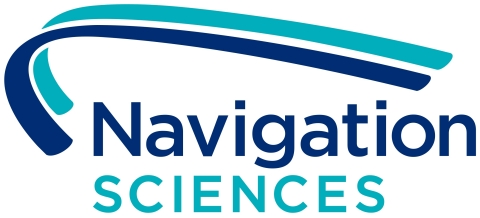Navigation Sciences™ Begins First-in-Human Clinical Feasibility Trial of its Pioneering, NaviSci™ System for Tissue-Conserving Removal of Early-Stage Lung Tumors
Navigation Sciences™ Begins First-in-Human Clinical Feasibility Trial of its Pioneering, NaviSci™ System for Tissue-Conserving Removal of Early-Stage Lung Tumors
BROOKLINE, Mass.--(BUSINESS WIRE)--Navigation Sciences today announced that the initial patient has participated in the first-in-human clinical feasibility trial of its NaviSci™ System for use in minimally invasive surgery to remove probable early-stage lung tumors. The Intelligent Surgery System, which integrates Augmented Reality and advanced software with surgical instruments, is the first designed to provide real-time measurement of surgical margins that are critical to reducing the risk of cancer recurrence and conserving lung function.
“The growing number of lung cancer patients diagnosed at an early stage, when resection is potentially curative, along with increasing use of tissue-sparing surgical approaches such as wedge resection and segmentectomy, have potential to significantly improve patient outcomes,” said the trial’s principal investigator Scott Swanson, MD, Director of Minimally Invasive Thoracic Surgery at Brigham and Women’s Hospital and Associate Chief of Surgery at the Dana-Farber/Brigham and Women’s Cancer Center. “In this setting, resection with the appropriate margin is both essential and challenging. This trial will provide the first opportunity to evaluate in patients during surgery the potential of a system that provides real-time ‘GPS’ guidance to the surgeon to determine the margin distance.”
The clinical feasibility trial, “Navigated Resection of Lung Nodules,” will evaluate NaviSci’s safety and ability to measure surgical margins in real time in 25 patients undergoing lung surgery, as well as evaluate the system’s potential to integrate and improve the surgical workflow. The study is being conducted at Brigham and Women’s Hospital in Boston.
“The clinical trial marks an important milestone for the NaviSci System’s development and the company,” said Alan D. Lucas, co-founder, and CEO of Navigation Sciences. “The NaviSci System and Intelligent Surgical approaches have great potential to dramatically increase the precision of lung and other complex cancer surgeries, improving patient outcomes and providing benefits to clinicians and providers. Successful completion of the trial will support an application to the FDA for U.S. marketing clearance.”
The NaviSci System enables the physician in real-time to know precisely where the target potential tumor nodule and surrounding tissue are in relationship to the surgical instrumentation and guide the surgeon on margin distance for excising the nodule. The system consists of several key components, including:
- active, fiducial marker with an electromagnetic sensor (called a J-Bar) that is placed next to the tumor to localize and track its position.
- a surgical cutting instrument with a second electromagnetic position sensor and, proprietary software that links the sensors on the tumor with the cutting instruments and provides visual as well as quantitative information to measure tumor margins in real-time.
There are more than 225,000 new cases of lung cancer diagnosed in the U.S. annually, of which more than 76,000 are early-stage tumors. The number of early-stage diagnoses is expected to grow significantly with increased adoption of CT X-ray screening and favorable reimbursement coverage. The growth is likely to be driven in part by a recent recommendation by the U.S. Preventative Services Task Force that the annual screening population be more than doubled, from 6.4 million to 14.5 million people.
Learn more about the trial “Navigated Resection of Lung Nodules” here.
About Navigation Sciences™
Navigation Sciences™ is a clinical-stage company developing the NaviSci™ System for the tissue conserving removal of lung cancer and other soft tissue tumors. The System integrates Augmented Reality and advanced software with surgical instruments to guide precise surgical resection by enabling for the first time, real-time in vivo margin measurement. The System aims to improve surgical outcomes with cutting-edge technologies that – reduce recurrence risk and conserve lung function – shorten hospital length of stay and enhance surgical workflow. The NaviSciTM System is based on technology exclusively licensed from the Brigham and Women’s Hospital. Learn more at www.navigationsci.com.
Contacts
Alan Lucas, CEO
Alan.lucas@navigationsci.com
+1-617-834-2829
